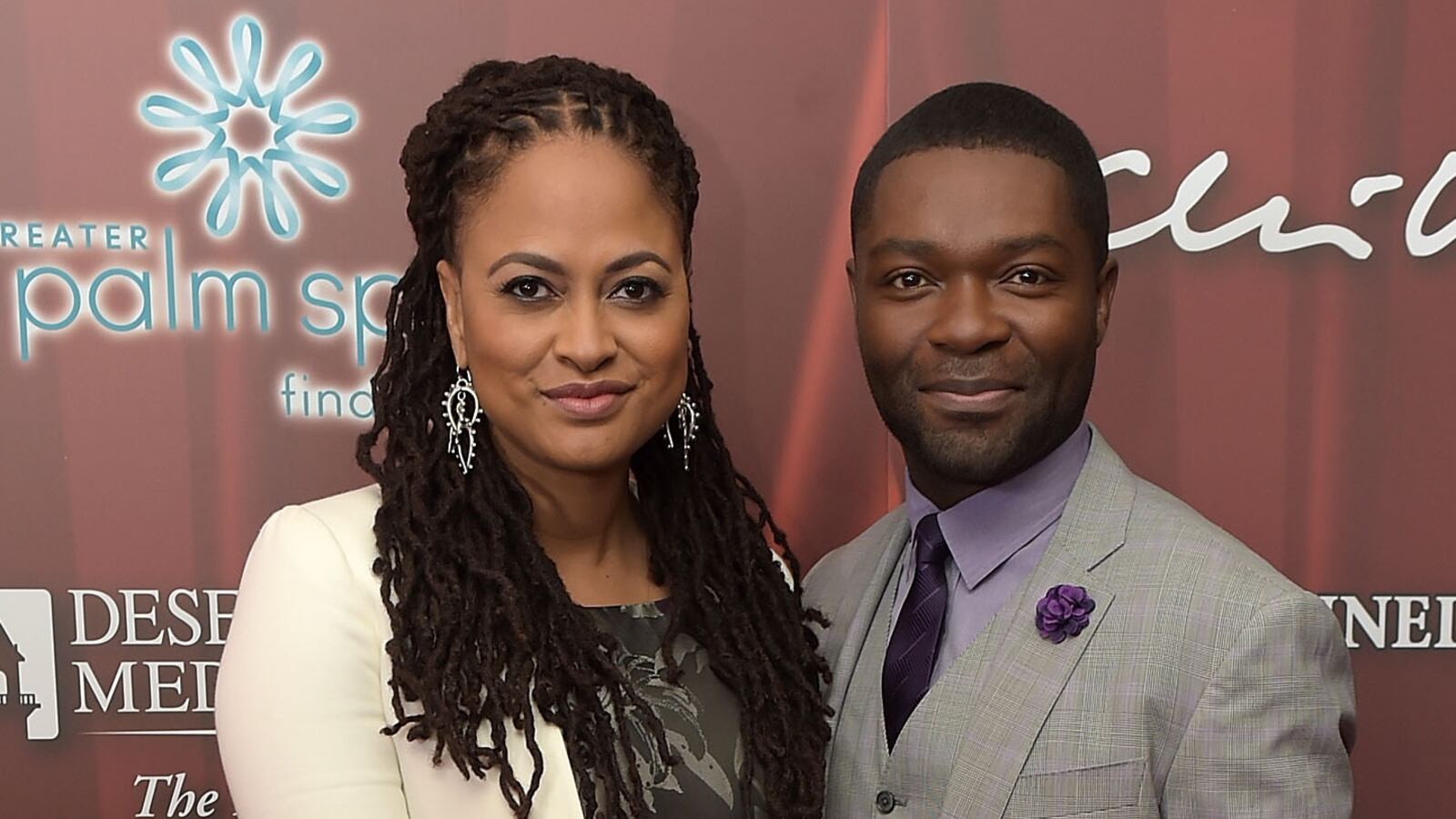Once again, the Oscars have sworn they’ll do better on race—and once again, it’s because of Ava Duvernay’s Selma.
On Thursday David Oyelowo, who played Martin Luther King Jr. in the 2014 film, told Screen Daily that after the Selma cast and crew wore “I Can’t Breathe” t-shirts to the film’s 2014 premiere in remembrance of Eric Garner, they were scolded and even lost Oscar votes.
“Members of the Academy called in to the studio and our producers saying, ‘How dare they do that? Why are they stirring S-H-I-T?’ and ‘We are not going to vote for that film because we do not think it is their place to be doing that,’” Oyelowo said.
“It’s part of why that film didn’t get everything that people think it should’ve got and it birthed #OscarsSoWhite,” Oyelowo continued. “They used their privilege to deny a film on the basis of what they valued in the world.”
Hours later, Selma director Ava Duvernay retweeted the article with the caption “True story.”
The Academy’s response was both prompt and vague: “Ava & David, we hear you. Unacceptable. We’re committed to progress.”
In 2015, Selma’s Oscar nominations snub was at the heart of a nominations list that spurred activist April Reign to create the hashtag #OscarsSoWhite. The Academy nominated the film only for Best Picture and Best Song—shutting out DuVernay and her cast.
The disdain among Oscar voters for the Selma crew’s Eric Garner protest was clear even from the outside; on one of the Hollywood Reporter’s “Brutally Honest” Oscar ballots, one voter wrote, “I thought that stuff was offensive. Did they want to be known for making the best movie of the year or for stirring up shit?”
Speaking with The New York Times in February, DuVernay noted that at the time, “Studio people had been whispering to me, ‘You shouldn’t have done that.’ But I would do it all again. If you cannot be respectful of our alignment with that cause, with that protest, with that rallying cry, then there was nothing that I wanted from you anyway.”
In 2016 the Academy began overhauling its voting rules to foster more diversity among both its members and nominees. But as we saw earlier this year at the Oscars, where nominees were once again overwhelmingly white despite a wealth of excellent work and performances from artists of color, there’s still a long way to go.






